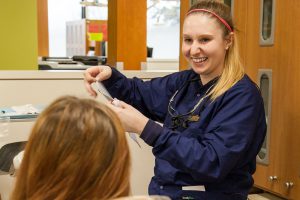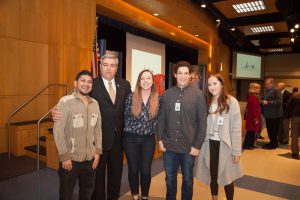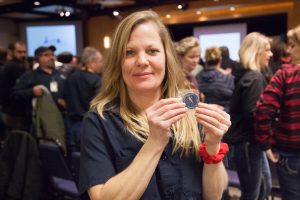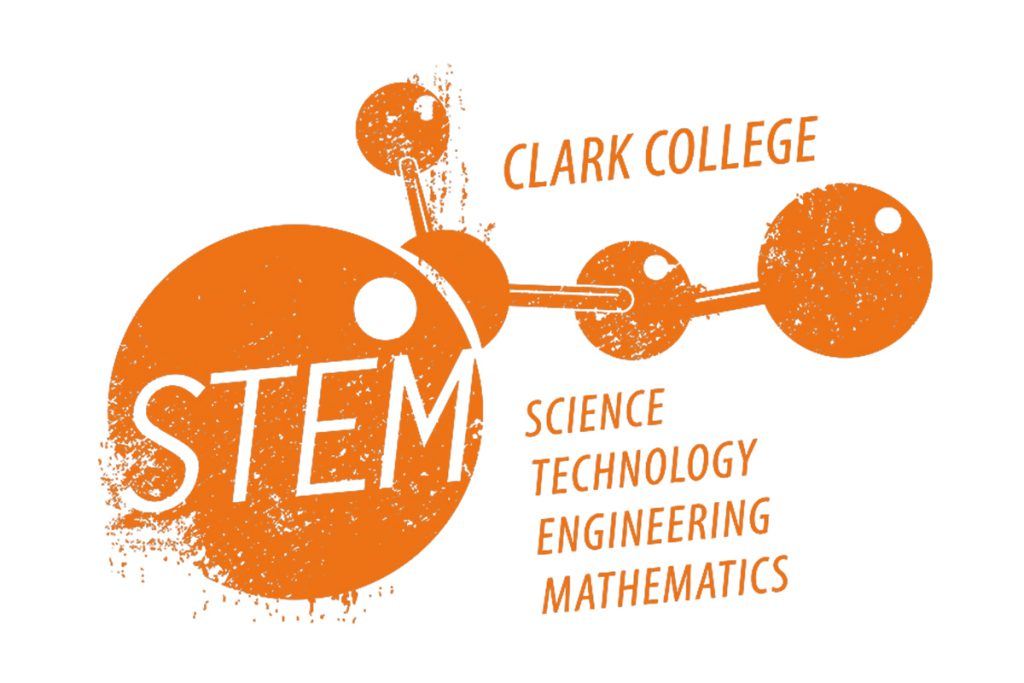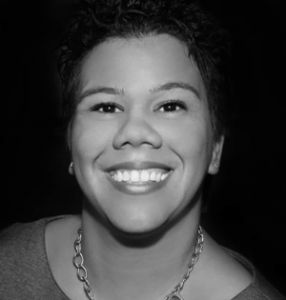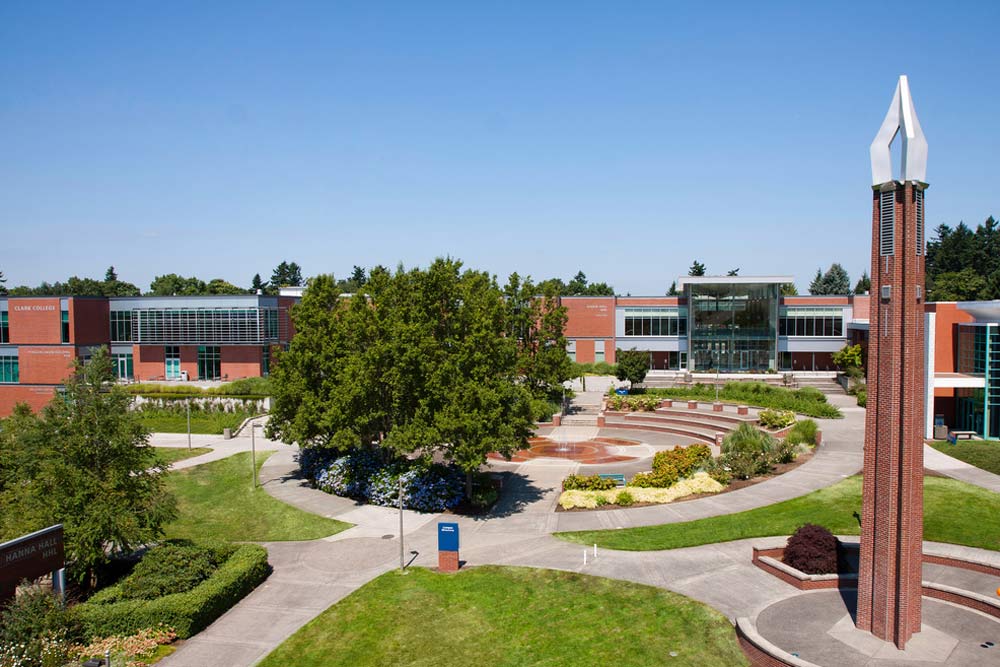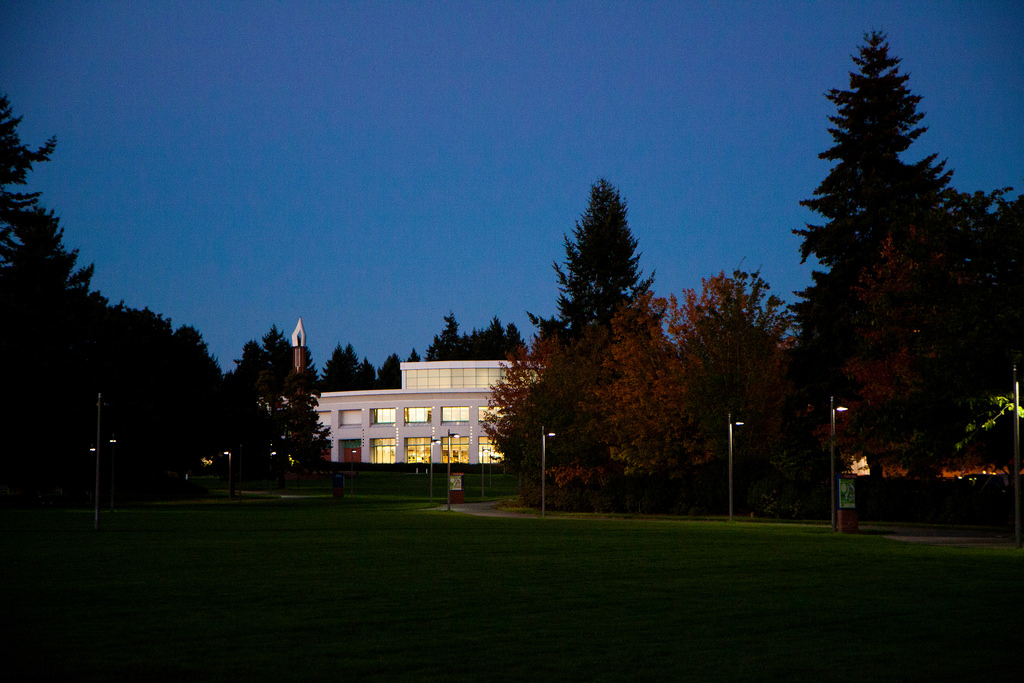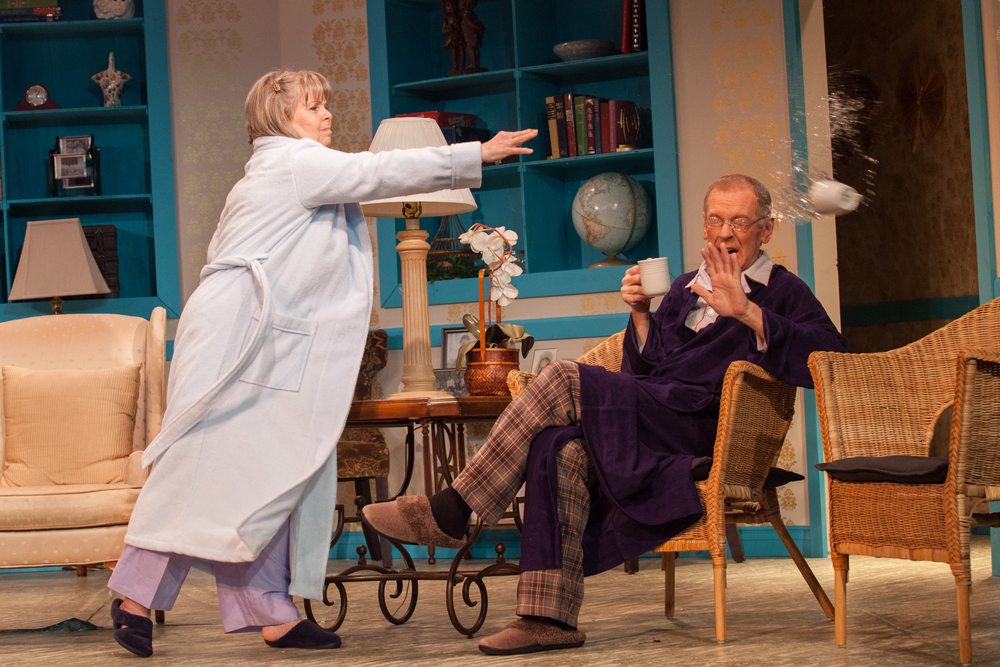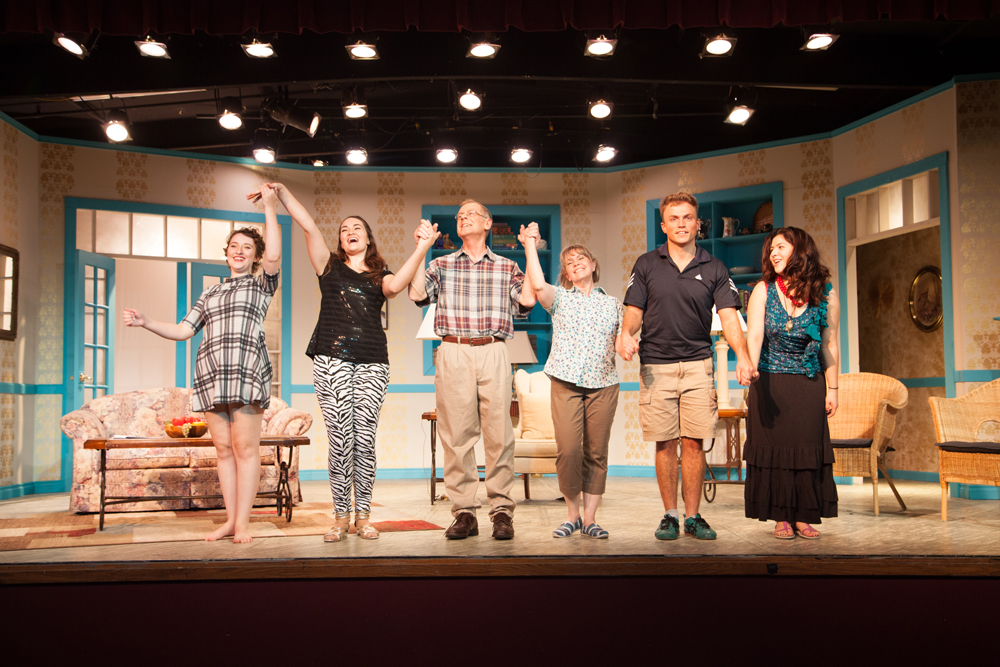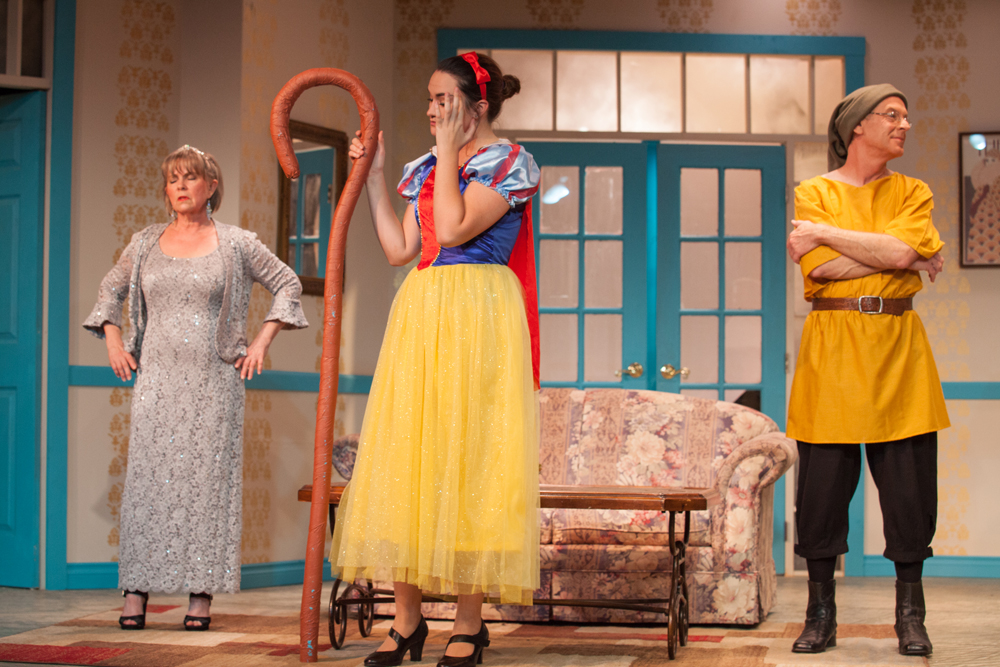Little patients, big smiles
Some days, it’s like the Tooth Fairy is trying to tell you something.
For instance, there’s nothing like losing one of your baby teeth to remind you that you need to visit the dentist. Fortunately for Juliet Shiemke, age 7, students from the Clark College Dental Hygiene program had organized a Free Children’s Dental Health Day just when she needed it most. Within hours of having another one of her front teeth pop out on Saturday, February 4, she was sitting in a dentist chair in the college’s Firstenburg Dental Hygiene Education and Care Center making sure the rest of her teeth were clean and healthy.
“My wife saw a flier for this at Juliet’s school, and it really came at the right time,” said Juliet’s father, Marc Shiemke, as he watched a Clark College Dental Hygiene student clean her teeth. “We moved up from Arizona six months ago and haven’t gotten dental insurance yet.”
Shiemke’s wife, Dallas, was sitting in a nearby bay with their 3-year-old son, Brendan. Like his sister, Brendan left the dentist chair with a clean bill of health and a bag full of goodies.
“Dental hygiene is very important for our kids,” Shiemke said. “I know I didn’t have the greatest care when I was growing up and I kind of suffered for it in my adult life—needing some bridges and teeth pulled. I want to make sure my kids get the best care for their teeth so they don’t have to go through the same stuff that I’ve gone through.”
That’s the idea behind this annual event, said Dr. Peter Lubisich, a pediatric dentist who serves on the college’s Dental Hygiene Advisory Council and organizes the volunteer dentists who help make this day possible. “In a sense, we’re a safety net for those who fall through the cracks” of the state’s dental-insurance coverage, he said. “One of the main reasons kids miss school can be because of tooth decay.”
While Children’s Dental Health Day, now in its 11th year, is the largest free-care event held by the Dental Hygiene program, its students regularly contribute free or low-cost care in their community. Indeed, the two students who led this year’s event originally became inspired to take on the mammoth responsibility after participating last spring in a free dental day for adults through a local nonprofit.
“The first patient we had there, we had tears in our eyes from the reaction that she had,” recalled Casey Hedeen, who expects to receive her Bachelor of Applied Science in Dental Hygiene this spring. “With the free clinic, she got what’s called a ‘partial’ so that she didn’t have a missing front tooth. She was in tears. At that moment, we knew this is what we wanted to do: We wanted to be part of something bringing that kind of change to people’s lives.”
Hedeen and her classmate Stephanie Pfeifer have been working on the event since September. With the help of many other student volunteers, they have publicized the event, organized appointments, and worked out the logistics of getting almost 130 children and their families in and out of the clinic smoothly.
“Even though we do it every year, we really want the students to plan their own event,” said Prof. Kristi Taylor, Interim Program Director of the Dental Hygiene program. “This gives them first-hand knowledge, not only to plan a public event and to actually see what it’s like and what that takes, but also to be one of the clinicians providing that care for the people who are coming here.”
As far as Marc Shiemke and his family are concerned, the students did a great job. “From the moment we walked in the door, the staff’s been super-friendly and super-efficient,” he said. “I thought it would take a long time, but we’ve probably been here half an hour and we’re almost done.”
Indeed, just minutes later, Juliet was sitting up in her chair. The Clark student who had been cleaning her teeth smiled and congratulated her on being a great patient, then held up her hand. And Juliet, flashing the brightest of gap-toothed smiles, returned the student’s high-five and got ready to go home with her family.
Photos and video: Clark College/Nick Bremer

